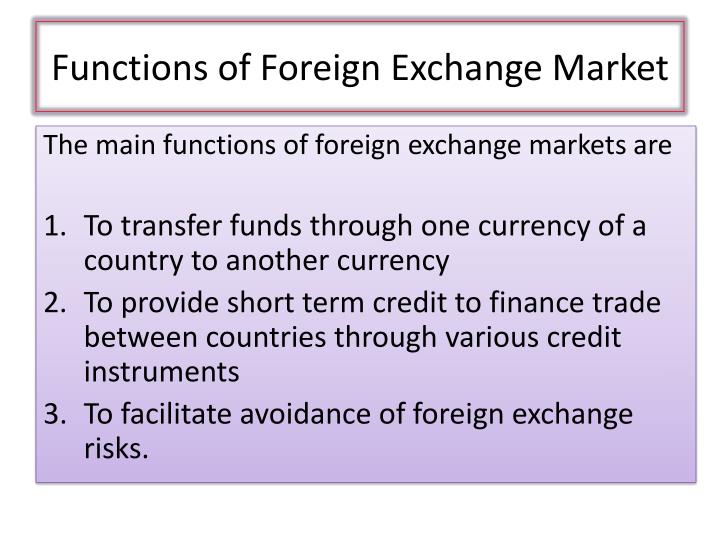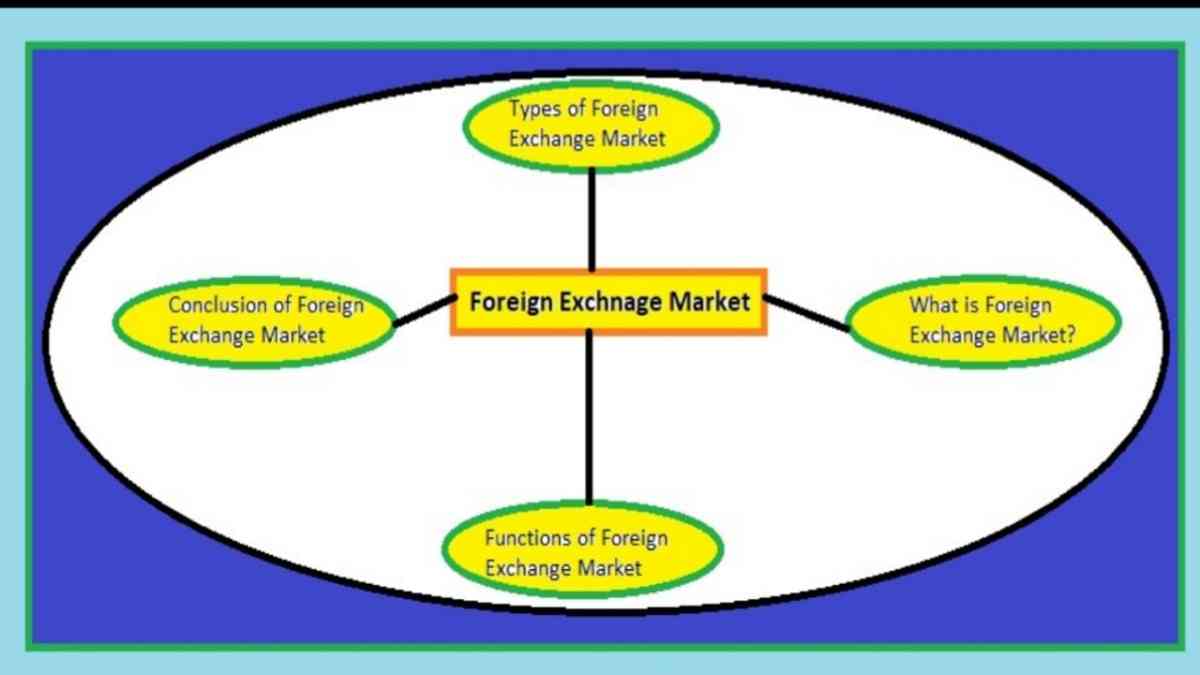Features and functions of foreign exchange market - The foreign exchange market, also known as forex, is a decentralized global marketplace where currencies are traded. Its unique features and diverse functions make it a crucial aspect of international finance. This guide will delve into the intricacies of the forex market, exploring its characteristics and the essential roles it plays in global trade, currency hedging, and speculation.
The forex market operates continuously across different time zones, providing unparalleled liquidity. Its decentralized nature allows for participation from various market players, including commercial banks, central banks, and individual traders. The market's high liquidity ensures efficient execution of trades, even for large amounts, and minimizes price fluctuations.
Features of the Foreign Exchange Market
The foreign exchange market, also known as the forex market, is the largest and most liquid financial market in the world. It is a decentralized global marketplace where currencies are traded 24 hours a day, five days a week.
For descriptions on additional topics like foreign exchange market how it works history and pros and cons (investopedia.com), please visit the available foreign exchange market how it works history and pros and cons (investopedia.com).
Decentralized Nature
Unlike traditional stock exchanges, the forex market does not have a central location. Instead, it is a network of banks, brokers, and other financial institutions that trade currencies electronically. This decentralized structure allows the forex market to operate continuously, even during times of political or economic instability.
Continuous Trading Hours
The forex market is open 24 hours a day, five days a week. This means that traders can buy and sell currencies at any time, regardless of their location. The market is most active during the overlap of the major financial centers, such as London, New York, and Tokyo.
Browse the multiple elements of what foreign exchange market meaning to gain a more broad understanding.
High Liquidity
The forex market is the most liquid financial market in the world. This means that there is always a large amount of currency available to buy and sell, which makes it easy for traders to execute orders quickly and efficiently.
Functions of the Foreign Exchange Market
:max_bytes(150000):strip_icc()/foreign-exchange-markets.asp-final-16abed069d5e4ba0924142476dec4211.png) The foreign exchange market (forex market) serves a crucial role in facilitating international trade and commerce. It enables businesses and individuals to exchange currencies and conduct transactions across borders. The forex market also provides a platform for hedging currency risks and engaging in speculative trading.
The foreign exchange market (forex market) serves a crucial role in facilitating international trade and commerce. It enables businesses and individuals to exchange currencies and conduct transactions across borders. The forex market also provides a platform for hedging currency risks and engaging in speculative trading. Facilitating International Trade
International trade involves the exchange of goods and services between countries. When a company imports goods from another country, it needs to pay for those goods in the foreign country's currency. The forex market provides a platform for businesses to convert their domestic currency into the foreign currency needed to make these payments.Currency Hedging
Currency hedging is a strategy used by businesses and individuals to mitigate the risk of foreign exchange rate fluctuations. When a business has operations in multiple countries, it is exposed to the risk that changes in exchange rates can affect its profits. By engaging in currency hedging, businesses can lock in an exchange rate for future transactions, protecting themselves from potential losses due to currency fluctuations.Speculation
The forex market also serves as a platform for speculation. Speculators buy and sell currencies with the goal of profiting from changes in their value. Forex speculators use various strategies to try to predict currency movements and make profitable trades.Participants in the Foreign Exchange Market
The foreign exchange market is a global marketplace where currencies are traded. It is the largest financial market in the world, with an average daily trading volume of over $5 trillion. The participants in the foreign exchange market include:- Commercial banks
- Central banks
- Investment banks
- Hedge funds
- Retail traders
Factors Affecting the Foreign Exchange Market

The foreign exchange market is a dynamic and ever-changing environment, influenced by a wide range of factors. These factors can be broadly classified into economic, political, and central bank policies.
Economic Data
Economic data, such as GDP growth, inflation rates, unemployment levels, and trade balances, provide insights into the overall health and performance of an economy. Strong economic data can boost confidence in a currency, leading to its appreciation, while weak economic data can have the opposite effect.
Do not overlook explore the latest data about the foreign exchange market serves two main functions. these are.
Political Events
Political events, such as elections, changes in government, or international conflicts, can significantly impact the foreign exchange market. Political instability or uncertainty can lead to a depreciation of a currency, while political stability and positive developments can boost its value.
Central Bank Policies
Central banks play a crucial role in managing the foreign exchange market through monetary policies, such as interest rate adjustments and quantitative easing. Changes in interest rates can affect the relative attractiveness of a currency, influencing its exchange rate.
Trading in the Foreign Exchange Market
 Trading in the foreign exchange market involves the buying and selling of currencies in order to profit from fluctuations in their exchange rates. There are different types of forex orders that traders can use, including market orders, limit orders, and stop orders.
Trading in the foreign exchange market involves the buying and selling of currencies in order to profit from fluctuations in their exchange rates. There are different types of forex orders that traders can use, including market orders, limit orders, and stop orders. Types of Forex Orders, Features and functions of foreign exchange market
- Market Orders: These orders are executed at the current market price and are used when traders want to enter or exit a position immediately.
- Limit Orders: These orders are executed only when the market price reaches a specified price level set by the trader. Limit orders are used to enter or exit a position at a more favorable price than the current market price.
- Stop Orders: These orders are used to protect profits or limit losses. A stop order is placed at a specified price level, and when the market price reaches that level, the order is triggered and the position is closed.
Risks Involved in Forex Trading
Forex trading involves a number of risks, including:- Currency Risk: The value of currencies can fluctuate rapidly, which can lead to losses for traders.
- Leverage Risk: Leverage can amplify both profits and losses, so it is important to use it wisely.
- Liquidity Risk: The foreign exchange market is a highly liquid market, but there can be times when it is difficult to buy or sell a currency at the desired price.
Final Conclusion: Features And Functions Of Foreign Exchange Market
In conclusion, the foreign exchange market is a dynamic and complex ecosystem that facilitates global trade, currency hedging, and speculation. Its unique features, including decentralization, continuous trading, and high liquidity, make it an essential component of the global financial system. Understanding the functions and characteristics of the forex market is crucial for businesses, investors, and anyone involved in international transactions.
